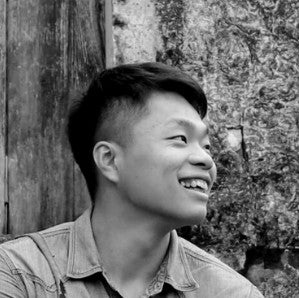Cheng Chen

Building Danwei Abroad: Chinese Contractor-Compounds in Kenya
Cheng's dissertation investigates the contexts, space-making, exchanges, and operational mechanisms of Chinese construction contractors’ compounds in Kenya. Focusing on the procedural, productive, and transnational compound space, this research formulates a danwei abroad concept to unravel how and why Chinese contractors deliver Chinese infrastructure projects and Chinese-style socio-spatial enclaves in the field. Empirical evidence from these compounds and comparative analysis with other foreign compounds offers a bottom-up understanding of the objectives, challenges, and responses of Chinese construction contractors, state-owned enterprises (SOEs), expatriates, and state capital abroad.
Anchoring on the temporal, productive, and immigrant compound space, the dissertation bridges African post-colonial urbanism and Chinese post-reform development within a politicized global system. Two 4-month fieldwork in Kenya in 2022 and 2023 facilitated this research. It spatializes and models the unique Chinese state capital in a globalizing era. Furthermore, the research develops its extensions like "Public-Private Partnership for Infrastructural Development", "Chinatowns in Africa", and "Tension between Chinese Real Estate and Kenyan Urbanism"
Cheng Chen is an architect, historian, educator, and interdisciplinary researcher of global built environment. He is a Ph.D. candidate at the University of Virginia, where he held a lecturer position teaching global urbanism and architecture. His research investigates systems and agents of urban development schemes with diverse interests in transportation infrastructure, transnational dynamics, and immigrant urbanism. His scholarly work engages political economy, resilience, stakeholders, migration, enclaves, business, and design strategies of contemporary urban complexes, while his design practices address settlement revitalization, social restructuring, and technological innovation.
Cheng explores the interdisciplinary and innovative dialogue between research, teaching, and design practice. At UVA, Cheng taught two foundation architecture studios and developed one lecture-based seminar, Built Contemporary China. He works with the Darden School of Business faculty on stakeholders in infrastructural Public-Private Partnerships. He is now an Adjunct Professor of Architecture at Kean University where he teaches architectural history and theory lectures and M.Arch design studios, a visiting scholar at the United States International University - Africa, and a faculty of urban planning and design at Columbia University.
Before joining the University of Virginia, Cheng gained his Master of Architecture degree from Tsinghua University and a Bachelor of Architecture degree from Southeast University. He is also an active architect practicing in China, South Asia, East Africa, and the U.S.
Chen, Cheng. “Transnational Mobility, Space, and Place-making in the Global South”. SAH 2024 Annual Conference. Society of Architectural Historians. Albuquerque. April 2024 (session chair).
Chen, Cheng. “Two Worlds Across the Compound Walls: Chinese state-owned enterprises’ danwei compounds in Nairobi, Kenya”, RC 21- International Journal of Urban and Regional Research. Santiago, July 2024.
Chen, Cheng. “Chinese Groceries in East Africa: A Mix of Chinatowns, Global Merchants, and Transnational Tensions”. ASA 2023 Annual Conference. African Studies Association. San Francisco, December 2023 (session chair and panelist).
Chen, Cheng. “Invisible Transnational Enclaves: African Immigrants and Their Space Making in Chinese Cities”. ASA 2022 Annual Conference. African Studies Association. Philadelphia, 2022.
Chen, Cheng. “Exporting Chinese Labor Regime and Space to Africa: A Case Study on the Chinese State-owned Enterprise Contractors and Their Construction Compounds in Africa”. ASA 2022 Annual Conference. African Studies Association. Philadelphia, November 2022.
Chen, Cheng. “Responsive Temporaries and Emanative Enclaves: Formalize and Materialize Chinese Construction Compounds in Rapid African Urbanization”. Rapid Cities: Responsive Architectures. AMPS. Dubai, November 2020.
Chen, Cheng. “A Discussion from the History of Leifeng Pagoda, to the Transmission of Architectural Memory”, Architecture and Culture, 2016(08): 212-213.
Upcoming:
Chen, Cheng. “From Construction Fences to LED-rendered Skyscrapers: Urban Beautification Campaigns and State Dominance in Contemporary Chinese Cities”. SAH 2025 Annual Conference. Society of Architectural Historians. Atlanta. April 2025.
